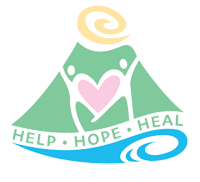Living with TBI
TBI FAQs
What to Expect When You See a Health Care Professional
While most people are seen in an emergency department or medical office, some people must stay in the hospital overnight. Your health care professional may do a scan of your brain (such as a CT scan) or other tests. Additional tests might be necessary, such as tests of your learning, memory concentration, and problem solving. These tests are called “neuropsychological” or “neurocognitive” tests and can help your health care professional identify the effects of a concussion. Even if the concussion doesn’t show up on these tests, you may still have a concussion.
Your health care professional will send you home with important instructions to follow. Be sure to follow all of your health care professional’s instructions carefully.
If you are taking medications—prescription, over-the-counter medicines, or “natural remedies”—or if you drink alcohol or take illicit drugs, tell your health care professional. Also, tell your health care professional if you are taking blood thinners (anticoagulant drugs), such as Coumadin and aspirin, because they can increase the chance of complications.
What Can I Do to Help Feel Better?
| Getting Better: Tips for Adults | Getting Better: Tips for Children |
|---|---|
|
Parents and caregivers of children who have had a concussion can help them recover by taking an active role in their recovery:
|
What are Potential Effects of TBI?
The severity of a traumatic brain injury (TBI) may range from “mild” (i.e., a brief change in mental status or consciousness) to “severe” (i.e., an extended period of unconsciousness or amnesia after the injury).
A TBI can cause a wide range of functional short- or long-term changes affecting:
- Thinking (i.e., memory and reasoning);
- Sensation (i.e., sight and balance);
- Language (i.e., communication, expression, and understanding); and
- Emotion (i.e., depression, anxiety, personality changes, aggression, acting out, and social inappropriateness).
A TBI can also cause epilepsy and increase the risk for conditions such as Alzheimer’s disease, Parkinson’s disease, and other brain disorders.
About 75% of TBIs that occur each year are concussions or other forms of mild TBI.
Repeated mild TBIs occurring over an extended period of time can result in cumulative neurological and cognitive deficits. Repeated mild TBIs occurring within a short period of time (i.e., hours, days, or weeks) can be catastrophic or fatal.
A severe TBI may lead to death, or result in an extended period of unconsciousness (coma) or amnesia. Individuals may experience significant changes in thinking and behavior. Moderate-to-severe TBI may also result in a reduced lifespan.
The consequences of severe TBI can affect all aspects of an individual’s life, including relationships with family and friends, the ability to progress at school or work, doing household tasks, driving, or participating in other daily activities.
Tips for Family, Friends, and Caregivers
| Recovery Phase | Caregiver Tips |
|---|---|
| The Immediate Aftermath |
During these first days, ask family and friends to help with chores you are unable to leave the hospital to do:
|
| Later Days in the Hospital | Reach out to the Brain Injury Association of America (BIAA) and the BIA affiliate in your state for information and educational materials. |
| The Rehabilitation Phase | An individual with a brain injury may not be fully aware of the impact of his or her injuries until he or she resumes old routines (personal care, for example). It can be very upsetting for the person when these realizations set in, and behavioral problems can surface. |
For more information on tips for families, caregivers, and friends, please visit Brain Injury Association of America’s Brain Injury Guide for Families and Caregivers.
